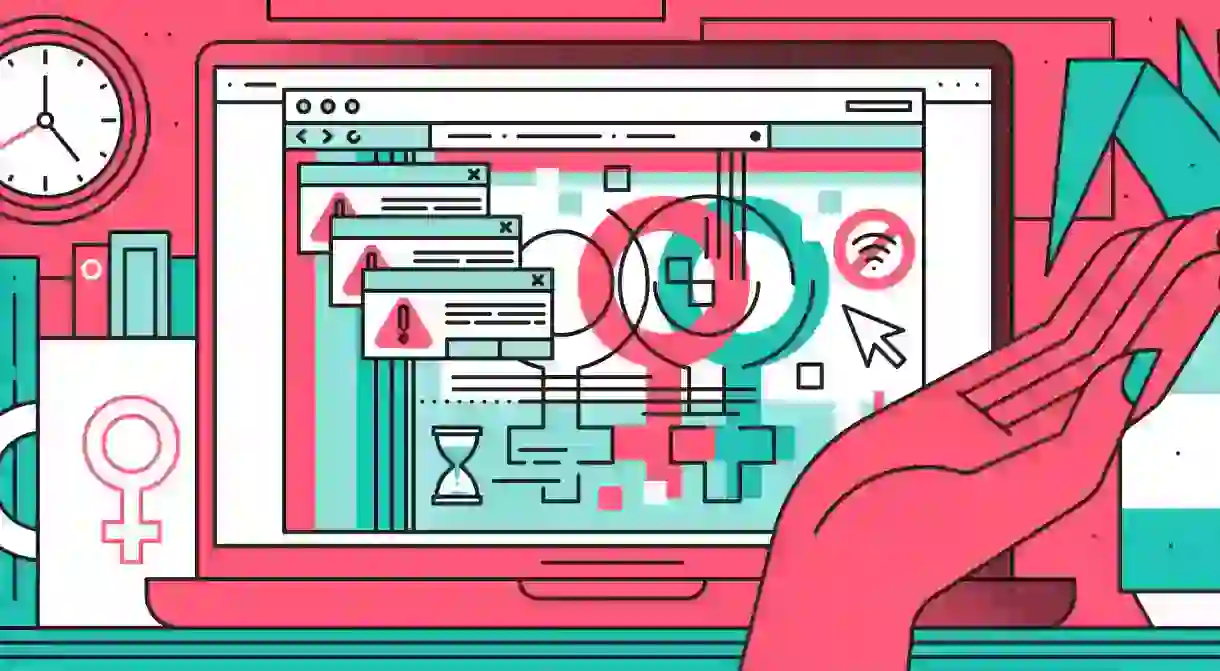Why America’s Net Neutrality Battle Is a Feminist Issue

The Federal Communications Commission (FCC) has announced it will next month vote on a plan to repeal net neutrality laws that require internet providers to give consumers equal access to all content online. A repeal would be bad news for everyone – especially women, whose voices, causes and businesses are often shut out of mainstream media.
Net neutrality laws prevent cable and phone companies – internet service providers, or ISPs – from slowing down or speeding up websites, content and applications that ride on their networks. (With net neutrality, you can load an independent blog as quickly as a page on an established media site like Fox News or The New York Times.) The laws ensure an ‘open internet’, where people have equal access to content online. But this week, the FCC announced it will vote on a plan to repeal net neutrality in December.
Without net neutrality, companies and content producers will have to pay ISPs to get the best connections to consumers. Rich companies will be able to pay for ‘fast lane’ access, meaning their content will load more quickly than independent or non-profit organisations. ISP’s own-brand content, streaming and messaging services could be given fast lane priority, and people may have to pay more to access certain content featured on ISP special-access packages.
ISPs could even block access to content that offers opinions they don’t agree with. In 2007, ISP Verizon blocked NARAL Pro-Choice America, an abortion advocacy group, from one of its group text-messaging programs, saying that it had a right to ban ‘controversial or unsavory’ text messages.
Without net neutrality, powerful, monied brands will control and dominate the online media landscape even more than they already do. For women, whose online voices are already marginalised, the loss of the open internet is a threat to online agency, autonomy, representation, power and wealth.
Many women’s and human rights issues – including reproductive rights and abortion, protection against sexual violence and rape, child marriage, domestic violence and gender equality in the workplace – are both ‘controversial and unsavory’. Without net neutrality, digital resources and stories addressing these issues are at risk. Women’s businesses, most of which are small, would be bumped in favour of wealthier competitors. In the news and information landscape, women’s voices and representation stand to be suppressed or lost.
In an open letter to the FCC, a collection of women’s rights groups wrote: ‘We need an open Internet so that we can organize and connect for political action and civic engagement; access vital news and information that is not available in the mainstream, corporate media, and ensure that women-led small businesses, creative endeavours, and innovations can flourish.’
The letter continues: ‘Already, our so-called “mainstream” media’s structural inequality continually leaves women and girls out.’ The most recent data from the Women’s Media Center shows a gender gap exists in traditional newspapers, online news, wire services, and TV news, where work by women anchors, field reporters and correspondents makes up just 25.2% of reports. ‘Especially affected by these structural inequalities are women and girls of color, trans women, queer women, and indigenous women, who are regularly attacked and objectified by major media when they’re not completely ignored and erased from our screens and speakers,’ the letter says.
Earlier this week, California Senator Kamala Harris (D) tweeted: ‘Keeping the internet free and open is paramount to ensuring the gatekeepers of the internet can’t tilt the competitive playing field. One website should not be prioritized over its competitor. We must save #NetNeutrality.’
At the FCC, Commissioners Mignon Clyburn and Jessica Rosenworcel – notably, the two female representatives on the five-person Commission – have spoken out against the repeal of laws, voicing their support of net neutrality. Rosenworcel this week published an article in the LA Times, urging citizens to contact the FCC and voice their opinion. Clyburn posted a two-page fact sheet on the FCC website, which you can read here.
With Clyburn and Rosenwocel’s votes in favour of net neutrality, just one of the remaining three commissioners could sway the vote. If you’re interested in acting on this issue, this page displays a map of planned protests. You can also write or call Congress to voice your opinion.













